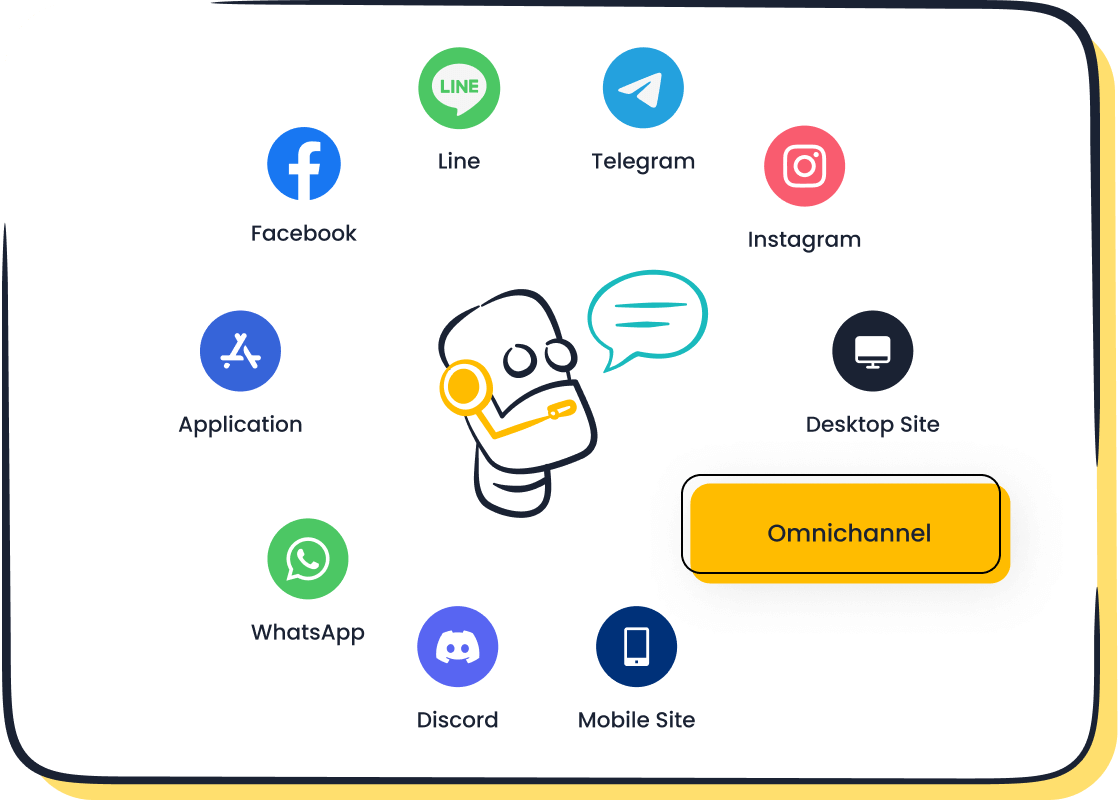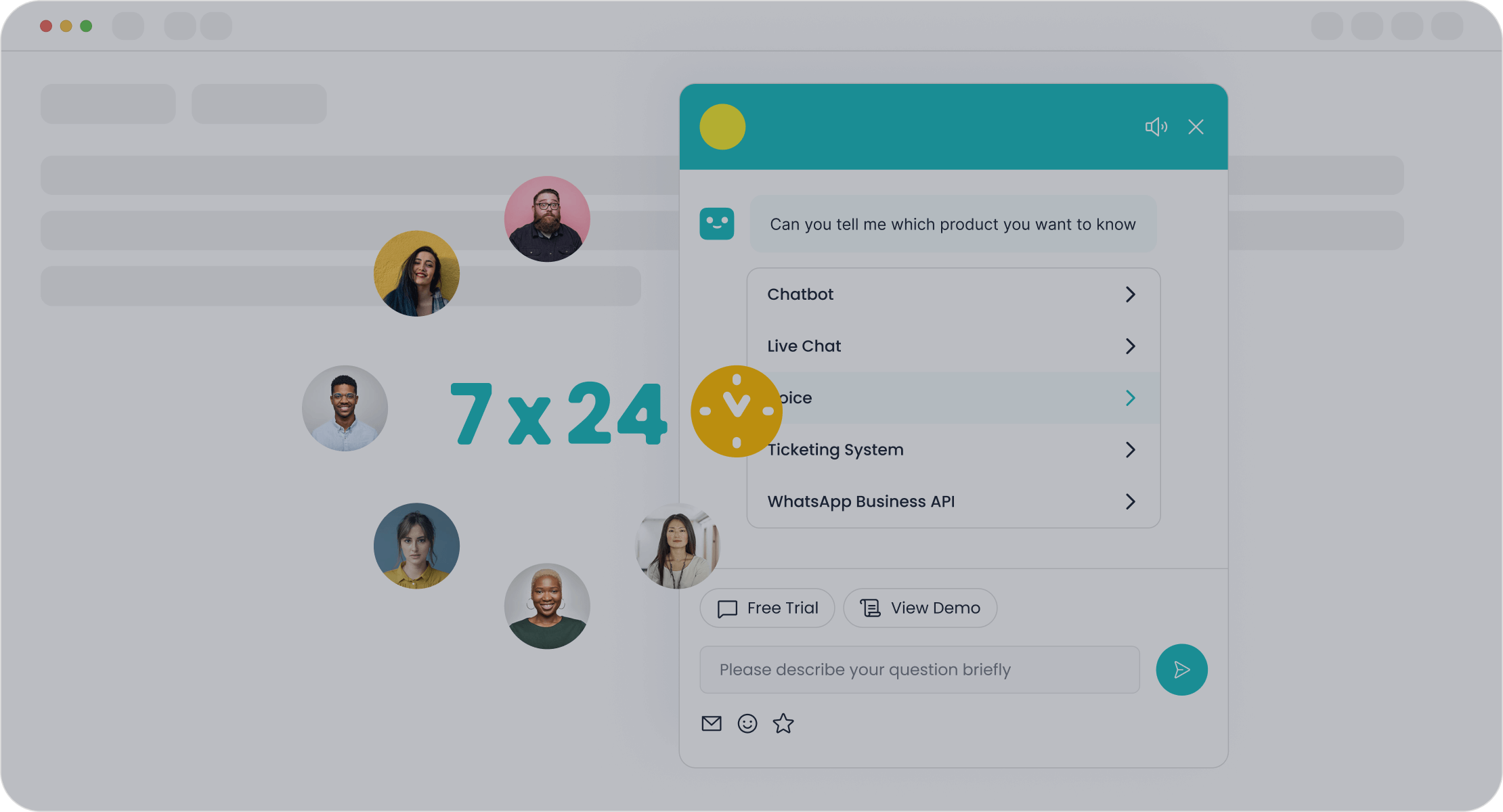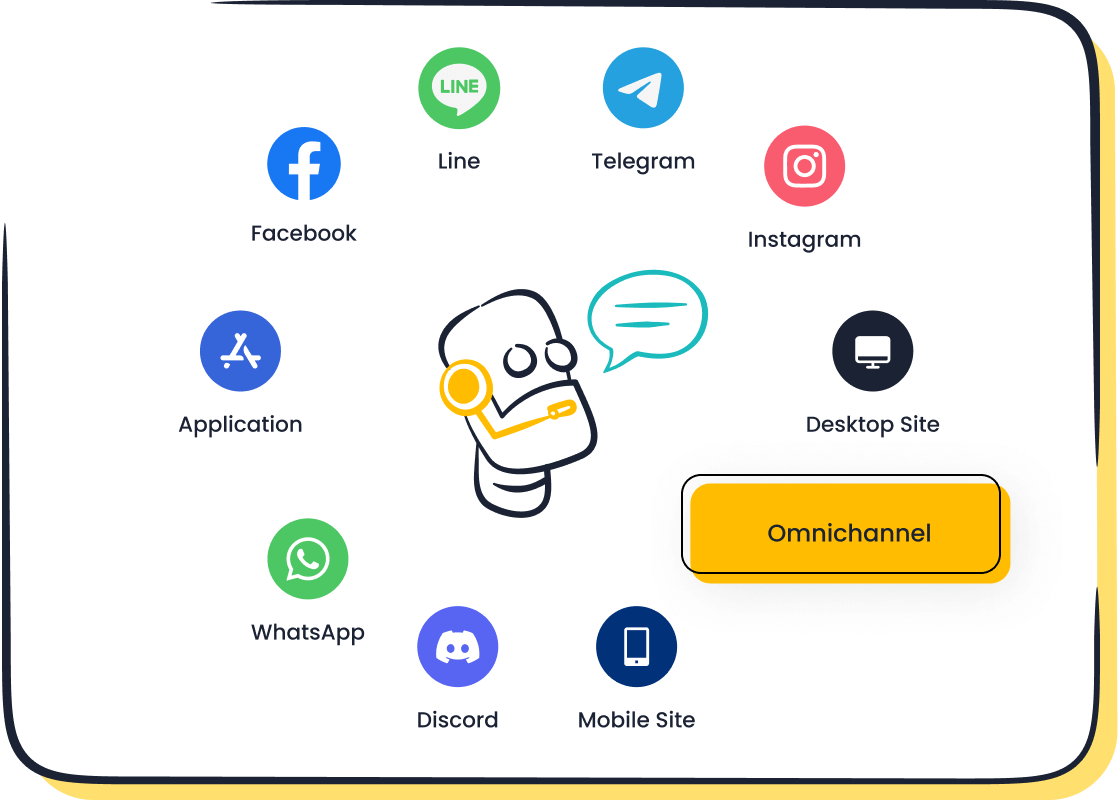Virtual Sales Assistants Explained for Business Growth

A virtual sales assistant is a tool designed to streamline sales processes by automating tasks and providing real-time support to customers. It can handle tasks like lead qualification, scheduling, and customer communication, allowing sales teams to focus on closing deals.
The importance of virtual sales assistants continues to grow. By 2030, their global market is expected to reach USD 14.1 billion. Businesses adopting virtual assistants, such as those offered by Sobot, can save up to 78% on costs compared to traditional staffing. These benefits make them essential for enhancing efficiency and customer engagement.
What Is a Virtual Sales Assistant?
Definition and Core Functions
A virtual sales assistant is a digital or human-powered tool designed to support your sales team by automating repetitive tasks and enhancing customer interactions. These assistants streamline processes like lead qualification, CRM updates, and client communication. By handling these responsibilities, they allow you to focus on strategic activities like closing deals and building relationships.
The core functions of a virtual sales assistant include:
| Core Function | Description |
|---|---|
| Lead Management | Researching prospects, maintaining contact lists, and qualifying leads. |
| Sales Administration | Updating CRM systems, managing sales pipelines, and tracking opportunities. |
| Client Communication | Cold calling, following up with prospects, and scheduling sales calls. |
| Sales Support | Preparing presentations, formatting proposals, and creating quote documents. |
| Data Management | Maintaining databases, updating records, and managing contact lists. |
| Reporting & Analytics | Creating reports, tracking KPIs, and monitoring performance metrics. |
These functions make virtual sales assistants indispensable for improving efficiency and ensuring no sales opportunity slips through the cracks.
Types of Virtual Sales Assistants: AI-Powered vs. Human
Virtual sales assistants come in two main types: AI-powered and human. Each type offers unique advantages depending on your business needs.

-
AI-Powered Virtual Sales Assistants: These assistants use advanced technologies like machine learning and natural language processing to automate tasks. They analyze customer intent, integrate with CRM systems, and provide personalized responses based on past interactions. For example, Sobot’s AI Chatbot operates 24/7, handling inquiries autonomously and boosting productivity by 70%. AI assistants are cost-effective and scalable, making them ideal for businesses aiming to reduce operational costs.
-
Human Virtual Sales Assistants: These are remote professionals who perform sales tasks manually. They excel in tasks requiring empathy, creativity, and complex decision-making. While they may lack the speed and scalability of AI, they bring a personal touch to customer interactions.
Choosing between AI-powered and human assistants depends on factors like your budget, the complexity of tasks, and the level of personalization required. Many businesses find a hybrid approach—combining AI efficiency with human empathy—most effective.
Key Features of Virtual Sales Assistants
Modern virtual sales assistants come equipped with features that enhance their functionality and value. Some of the key features include:
- Predictive Analytics: These tools analyze historical data to guide your sales team on the best next steps.
- Omnichannel Support: Virtual assistants interact with customers across platforms like email, chat, and social media.
- Personalization: AI-powered assistants tailor responses based on customer preferences and past interactions.
- Integration with CRM Systems: They seamlessly connect with tools like Salesforce or HubSpot to update records and track sales progress.
- Automation of Routine Tasks: Tasks like lead scoring, follow-ups, and data entry are handled without error.
- Sales Coaching Tools: Assistants provide actionable tips and reminders to improve your team’s performance.

For instance, Sobot’s AI Chatbot offers multilingual support, operates 24/7, and integrates with various platforms. It also uses smart self-service and proactive messaging to boost conversions by 20%. These features make virtual sales assistants a powerful asset for businesses looking to optimize their sales processes.

How Virtual Sales Assistants Work
Integration with Sales Tools and CRMs
Virtual sales assistants seamlessly integrate with sales tools and CRMs, creating a unified system for managing customer interactions and sales processes. This integration enhances efficiency and ensures your team has access to accurate, up-to-date information.
- Significant improvements in lead conversion rates and customer engagement have been observed with AI-driven tools like SalesCloser AI.
- Predictive analytics helps identify potential leads and tailor pitches, giving your team a competitive edge.
- Routine tasks such as data entry, scheduling follow-ups, and generating reports are automated, saving time and reducing errors.
For example, Sobot’s AI Chatbot integrates effortlessly with popular CRMs like Salesforce and HubSpot. It updates records in real time, tracks sales progress, and provides actionable insights. This level of integration allows you to focus on building relationships while the assistant handles the administrative workload.
Automation of Sales Tasks with Sobot Chatbot
Sobot’s AI Chatbot revolutionizes sales task automation. It autonomously handles repetitive tasks, improving productivity by 70%. The chatbot operates 24/7, ensuring no lead or query goes unattended.
Tasks like lead qualification, follow-ups, and data entry are completed with precision. The chatbot also uses smart self-service and proactive messaging to boost conversions by 20%. Its multilingual capabilities allow you to engage with clients in their preferred language, enhancing customer satisfaction.
With its no-coding-required setup, Sobot’s Chatbot is easy to deploy and customize. It integrates with various platforms, including WhatsApp and SMS, making it a versatile tool for modern sales teams.
Real-Time Client Communication and Support
Real-time client communication is crucial for closing deals and retaining customers. Virtual sales assistants excel in providing immediate assistance, answering last-minute questions, and resolving issues efficiently.
- Prompt responses reduce cart abandonment and improve conversion rates.
- Faster issue resolution lowers operational costs and enhances customer satisfaction.
- Proactive interactions help identify recurring problems, allowing you to address them before they escalate.
Sobot’s AI Chatbot ensures seamless client communication across multiple channels. It mimics human-like interactions, providing personalized responses based on customer preferences. This capability not only builds trust but also strengthens your relationship with clients.
Benefits of Virtual Sales Assistants for Business Growth

Enhanced Productivity and Efficiency
Virtual sales assistants significantly enhance your productivity by automating repetitive tasks and streamlining workflows. They handle time-consuming activities like data entry, lead qualification, and follow-ups, allowing your sales team to focus on closing deals and building relationships. This shift not only saves time but also ensures that no sales opportunity is overlooked.

For example, Sobot’s AI Chatbot operates 24/7, autonomously managing routine tasks with precision. It improves productivity by 70%, ensuring your team can dedicate their energy to strategic activities. The chatbot’s ability to integrate with CRMs like Salesforce and HubSpot further boosts efficiency by providing real-time updates and actionable insights.
| Metric | Description |
|---|---|
| Task Completion Rates | Measures the percentage of tasks completed by virtual assistants, indicating their efficiency. |
| Response Times | Tracks the time taken to respond to inquiries, reflecting the speed of service. |
| Quality of Work | Assesses the accuracy and effectiveness of the tasks performed, ensuring high standards. |
These metrics highlight how virtual sales assistants optimize your operations, enabling you to achieve more in less time.
Cost-Effective Sales Support Solutions
Hiring a virtual sales assistant is a cost-effective alternative to traditional staffing. These assistants reduce operational expenses by automating tasks and minimizing the need for additional personnel. Businesses adopting virtual solutions, such as Sobot’s AI Chatbot, save up to 50% on agent costs while maintaining high service standards.
| Benefit | Description | Impact on Cost-Effectiveness |
|---|---|---|
| Commissioning Time Reduction | Virtual solutions save up to 60% in commissioning time. | Significant cost savings |
| Error Reduction | Virtual commissioning reduces design errors and costly on-site debugging. | Lower operational costs |
| Faster Time to Profit | Meeting production volume and quality requirements in less time. | Improved cash flow |
| Remote Engagement | Smart service solutions allow for remote diagnostics and advice. | Reduced travel costs |
| Time to Market | Solutions reduce time to market and quality costs. | Enhanced competitiveness |
Sobot’s AI Chatbot exemplifies these benefits by offering 24/7 sales support, reducing the need for overtime or additional staffing. Its multilingual capabilities and omnichannel integration ensure seamless customer interactions, further enhancing cost efficiency.
Improved Lead Management and Customer Retention
Virtual sales assistants play a pivotal role in improving lead management and customer retention. They analyze customer data to identify preferences and behavior patterns, enabling you to tailor your sales strategies. By nurturing leads effectively, these assistants help you boost sales and build long-term customer relationships.
- Virtual assistants enhance customer retention by managing relationships, collecting feedback, and providing proactive support.
- A study by Harvard Business Review shows that increasing customer retention rates by 5% can boost profits by 25% to 95%.
- Companies excelling at lead nurturing generate 50% more sales-ready leads at a 33% lower cost.
Sobot’s AI Chatbot supports these efforts by tracking key performance metrics and providing insights into sales trends. Its ability to engage customers across multiple channels ensures consistent communication, fostering trust and loyalty. This approach not only improves customer satisfaction but also drives repeat business, making it an invaluable asset for your sales support services.
Scalability and Adaptability for Growing Businesses
Scalability and adaptability are crucial for businesses aiming to grow in today’s competitive market. A virtual sales assistant offers the flexibility and efficiency you need to expand your operations without overwhelming your resources. These assistants adapt to your business needs, ensuring smooth transitions as your company evolves.
How Virtual Sales Assistants Enable Scalability
Virtual sales assistants allow you to handle more work without increasing your team size. AI-powered assistants, like Sobot’s AI Chatbot, automate repetitive tasks, freeing up your team to focus on strategic goals. This automation ensures that your business can manage higher workloads without sacrificing quality.
- AI integration reduces inaccuracies, improving the efficiency of your sales processes.
- Virtual assistants complete tasks faster, enabling your team to meet growing demands.
- As your business expands, you can scale your assistant support by adding more assistants or expanding their roles.

For example, Sobot’s AI Chatbot operates 24/7, handling inquiries and tasks autonomously. This capability ensures that your business remains responsive, even during peak times. By integrating with tools like CRMs, the chatbot provides real-time updates, helping you manage increased customer interactions seamlessly.
Adapting to Changing Business Needs
A virtual sales assistant adapts to your evolving requirements. Whether you need to manage a sudden surge in leads or shift your focus to a new market, these assistants adjust their functions to align with your goals. Their flexibility makes them an invaluable asset for businesses navigating dynamic markets.
- Virtual assistants provide cost-effective support, enhancing productivity as your business grows.
- AI-powered solutions handle complex tasks, such as analyzing customer data and generating insights.
- Assistants integrate with multiple platforms, ensuring consistent performance across channels.
Sobot’s AI Chatbot exemplifies this adaptability. Its multilingual capabilities allow you to engage with diverse audiences, while its omnichannel support ensures seamless communication. These features make it easier for your business to enter new markets and maintain high service standards.
Why Scalability and Adaptability Matter
Scalability and adaptability directly impact your ability to compete and thrive. A virtual sales assistant ensures that your business can grow without being held back by operational inefficiencies. By automating tasks and providing real-time support, these assistants help you stay ahead in a fast-paced environment.
Tip: Investing in a virtual sales assistant like Sobot’s AI Chatbot can future-proof your business. Its ability to scale and adapt ensures that you’re always prepared for growth opportunities.
By leveraging the capabilities of a virtual sales assistant, you can focus on strategic initiatives while maintaining operational excellence. This approach not only supports your current goals but also positions your business for long-term success.
Tasks Handled by Virtual Sales Assistants

Lead Generation and Qualification
A virtual sales assistant plays a crucial role in lead generation by identifying and engaging potential customers. These assistants tailor their outreach to specific customer segments, ensuring your messages resonate with the right audience. By crafting compelling messages, they capture attention and spark interest, helping you expand your customer base.
Virtual assistants also qualify leads by assessing their potential value. They focus on high-quality prospects, saving you time and effort. Through continuous interaction, they nurture relationships and guide leads toward informed purchasing decisions. This targeted approach reduces wasted effort and enhances the effectiveness of your campaigns.
Additionally, virtual assistants conduct market research and collect data to refine your strategies. They provide detailed analyses of outreach activities, highlighting key metrics and campaign performance. This data-driven approach supports informed decision-making and ensures continuous improvement in lead generation efforts.
CRM Management and Data Entry
Effective CRM management is essential for successful sales administration. Virtual sales assistants excel at maintaining clean and organized data, which improves productivity and reduces errors. Studies show that businesses using CRM systems effectively can increase productivity by 88%.
Virtual assistants handle tasks like updating customer records, tracking interactions, and managing sales pipelines. This ensures your CRM system remains accurate and up-to-date. Clean data not only prevents revenue loss but also boosts sales productivity by up to 34%. With a virtual assistant managing your CRM, you can focus on building relationships and closing deals.
Scheduling, Follow-Ups, and Client Communication
Managing schedules and follow-ups can be time-consuming, but a virtual sales assistant simplifies these tasks. They organize your calendar, ensuring you never miss an important meeting. A well-organized schedule can result in 25% more meetings booked, maximizing your productive hours.
Virtual assistants also handle timely follow-ups, which can increase conversion rates by 30%. They ensure no opportunity slips through the cracks by maintaining consistent communication with your clients. Whether it’s sending reminders, answering queries, or providing updates, these assistants keep your clients engaged and satisfied.
By managing client communication efficiently, virtual assistants help you build trust and foster long-term relationships. Their proactive approach ensures your brand stays top-of-mind, enhancing customer loyalty and retention.
Customer Support and Query Resolution
Virtual sales assistants excel at providing efficient customer support and resolving queries. They manage routine inquiries, allowing human agents to focus on complex issues that require emotional intelligence. By personalizing interactions based on customer data, they transform standardized service into tailored experiences. This approach enhances customer satisfaction and builds trust.
Here’s how virtual sales assistants contribute to customer support:
- They handle thousands of inquiries simultaneously, ensuring immediate attention for every customer.
- They personalize communication by identifying customer needs, creating a hassle-free experience.
- They manage routine tasks like appointment scheduling and reminders, reducing no-shows and saving time.
| Role of Virtual Sales Assistants | Description |
|---|---|
| Customer Interaction Management | They resolve complaints and enhance the overall customer experience. |
| Appointment Scheduling | They coordinate calendars, confirm appointments, and send reminders. |
| Personalized Support | They tailor communication to customer needs for a seamless experience. |
| Cost and Time Efficiency | Businesses save time and reduce costs while maintaining service quality. |
Tip: Use AI-powered assistants like Sobot’s Chatbot to automate routine inquiries and provide 24/7 support. This ensures your customers always receive timely and accurate responses.
Sales Reporting and Analytics
Virtual sales assistants simplify sales reporting and analytics, helping you measure performance metrics effectively. They create detailed reports and provide real-time insights, enabling your team to refine strategies and achieve better outcomes. By automating these processes, they save time and reduce errors.
Key benefits of virtual assistants in sales analytics include:
- They generate instant reports on key metrics, ensuring you stay updated on performance trends.
- They integrate with analytics platforms to provide actionable insights through conversational queries.
- They send automated alerts for metric deviations, helping you address issues promptly.
Note: AI-powered assistants like Sobot’s Chatbot can analyze sales data and suggest improvements. This data-driven approach ensures your team focuses on strategies that yield positive results.
By leveraging virtual sales assistants for reporting and analytics, you gain a competitive edge. Their ability to process large volumes of data quickly and accurately ensures your business remains agile and informed.
Transforming the Sales Process with Virtual Sales Assistants
Leveraging Sobot’s AI Solutions for Sales Optimization
Sobot’s AI solutions redefine how you approach sales optimization. By automating repetitive tasks, virtual sales assistants free up your team to focus on high-value activities like closing deals and nurturing relationships. For example, Sobot’s AI Chatbot operates 24/7, ensuring no lead goes unattended. It handles tasks like lead qualification, follow-ups, and data entry with precision, boosting productivity by 70%.
Virtual sales assistants also provide real-time coaching during calls. They analyze conversations and offer instant feedback, helping your team improve success rates. Additionally, tools like Sobot’s AI platform enable smarter sales forecasting. By analyzing buyer behavior and market trends, you can make accurate predictions and manage your pipeline effectively.
| Benefit/Application | Description |
|---|---|
| Automation | AI sales assistants streamline operations, allowing sales reps to focus on high-value activities. |
| Real-time Coaching | Provides instant feedback during calls, enhancing conversation effectiveness and success rates. |
| Sales Forecasting and Pipeline Management | Enables smarter, data-driven decisions by analyzing real-time trends and buyer behavior for accurate predictions. |
These capabilities make Sobot’s AI solutions indispensable for optimizing your sales process and driving growth.
Data-Driven Decision Making and Insights
Virtual sales assistants empower you to make informed decisions by providing actionable insights. They analyze large volumes of data, identifying trends and patterns that help refine your strategies. For instance, Sobot’s AI Chatbot integrates seamlessly with CRMs like Salesforce, offering real-time updates and detailed reports. This ensures your team stays ahead of market changes and customer needs.
Case studies highlight the impact of Sobot’s AI solutions on sales performance. Businesses using Sobot’s platform report significant improvements, such as a 96% positive feedback rate and a 97% customer satisfaction score. In Southeast Asia, 22.2% of customer questions were answered independently, showcasing the chatbot’s efficiency.
| Case Study Description | Impact on Sales Performance |
|---|---|
| Reduced inbound discussion volume by 20% and increased positive feedback to 96% | All-in-One Contact Center Solution |
| Over 80% of answers are correct, with 95% customer satisfaction | Sobot contact center AI platform |
| 22.2% of customer questions answered independently, CSAT score of 97% | Southeast Asian market expansion |
By leveraging these insights, you can optimize your sales strategies and achieve better outcomes.
Personalization and Omnichannel Customer Engagement
Personalization and omnichannel engagement are key to transforming your sales process. Virtual sales assistants tailor interactions based on customer profiles, making each client feel valued. For example, Sobot’s AI Chatbot uses customer data to craft personalized responses, enhancing satisfaction and loyalty.
Omnichannel engagement ensures a consistent experience across platforms like email, chat, and social media. This reduces friction in the customer journey and strengthens relationships. A unified view of customer interactions helps you build trust and increase retention rates.
- Omnichannel engagement provides a seamless experience across all channels, reducing friction.
- Personalized interactions based on customer profiles enhance the feeling of being valued.
- A unified view of the customer journey leads to stronger relationships and increased brand loyalty.
- Improved customer experiences contribute to better business performance and reduced churn.
Sobot’s AI Chatbot exemplifies these benefits. Its multilingual capabilities and omnichannel support ensure smooth communication, making it easier for you to connect with diverse audiences. By prioritizing personalization and engagement, you can foster long-term relationships and drive business growth.
How to Hire a Virtual Sales Assistant Effectively
Identifying Your Business Needs and Goals
Before hiring a virtual sales assistant, you need to define your business needs and goals. Start by identifying the tasks that consume the most time or require repetitive effort. These could include lead qualification, CRM updates, or customer follow-ups. Once you pinpoint these areas, align them with your broader business objectives. For example, if your goal is to improve customer retention, focus on tasks that enhance client communication and satisfaction.
Using frameworks like the 2xYou Formula or the One-Minute Manager can simplify this process. The 2xYou Formula emphasizes delegating the right tasks, implementing efficient systems, and assessing the assistant's suitability. Meanwhile, the One-Minute Manager focuses on setting clear goals and providing immediate feedback. These methods ensure your virtual assistant contributes directly to your business growth.
| Framework | Key Components |
|---|---|
| The 2xYou Formula | Identify core tasks, implement systems, and assess the assistant's fit. |
| The One-Minute Manager | Define clear goals, provide feedback, and celebrate successes. |
Evaluating Skills, Experience, and Tools
When hiring a virtual sales assistant, evaluate their skills, experience, and tools. Review their portfolio to assess the quality of their work and relevance to your needs. Look for client testimonials and case studies that demonstrate their expertise. During interviews, ask about their problem-solving abilities and communication skills. Avoid candidates with inconsistent work histories or poor transparency.
| Metric | Evaluation Criteria |
|---|---|
| Portfolio Review | Assess relevance, quality, client testimonials, and case studies |
| Interview Questions | General experience, skill-specific questions, problem-solving, communication skills |
| Red Flags | Inconsistent work history, lack of transparency, poor communication skills |
Additionally, consider the tools they use. A virtual assistant proficient in CRM platforms like Salesforce or HubSpot can streamline your sales processes. Their ability to analyze data and generate insights will also enhance decision-making.
Choosing Between AI-Powered and Human Assistants
Deciding between AI-powered and human virtual sales assistants depends on your business needs. AI-powered assistants excel at automating repetitive tasks, operating 24/7, and scaling with your business. For instance, Sobot’s AI Chatbot handles lead qualification, follow-ups, and data entry with precision. It also integrates seamlessly with multiple platforms, making it a versatile choice for sales assistant services.
Human assistants, on the other hand, bring empathy and creativity to customer interactions. They are ideal for tasks requiring complex decision-making or a personal touch. A hybrid approach often works best, combining the efficiency of AI with the adaptability of human assistants.
Tip: Evaluate your budget, task complexity, and desired level of personalization before making a choice. This ensures you select the right assistant for your business.
Onboarding and Training for Seamless Integration
A seamless onboarding process ensures your virtual sales assistant becomes an effective part of your team quickly. Training helps them understand their role, adapt to your workflows, and align with your company culture. Without proper onboarding, task mismanagement and communication issues can arise, slowing down your operations.
Steps for Effective Onboarding
-
Define Clear Roles and Responsibilities
Start by outlining the assistant’s tasks and expectations. Provide a detailed list of their daily activities, such as lead qualification, CRM updates, or customer communication. This clarity helps them focus on their priorities from day one. -
Provide Access to Tools and Resources
Equip your assistant with the necessary tools, such as CRM platforms, communication software, and training materials. Familiarize them with your systems to ensure smooth integration. -
Conduct Training Sessions
Organize training sessions to teach your assistant how to use your tools and follow your workflows. Include real-world scenarios to prepare them for challenges they may face. -
Monitor Progress and Offer Feedback
Track their performance during the initial weeks. Provide constructive feedback to help them improve and adapt. Regular check-ins ensure they stay aligned with your goals.
Benefits of Structured Onboarding
| Benefit | Description |
|---|---|
| Enhanced Productivity | Assistants understand their roles, boosting efficiency from the start. |
| Risk Mitigation | A clear process prevents task mismanagement and communication issues. |
| Team Integration | Structured onboarding helps assistants adapt to company culture quickly. |
Tip: Use tools like Sobot’s AI Chatbot to simplify training. Its intuitive interface and no-coding setup make onboarding faster and more efficient.
A well-planned onboarding process sets your virtual sales assistant up for success. By investing time in training, you ensure they contribute effectively to your business growth.
Virtual sales assistants have revolutionized how businesses approach sales and customer experience. By automating tasks and providing real-time support, they enhance efficiency, reduce costs, and improve customer relationships. For instance, virtual assistants can cut operating expenses by up to 78% and boost productivity by 85%, making them indispensable for modern businesses.
Sobot’s AI Chatbot exemplifies these benefits. It operates 24/7, handles routine inquiries, and provides multilingual support, ensuring seamless customer interactions. Its ability to integrate with CRMs and analyze data empowers businesses to make informed decisions and scale operations effectively.
Tip: Investing in a virtual sales assistant like Sobot’s AI Chatbot can future-proof your business, ensuring you stay competitive in a fast-paced market.
Explore Sobot’s solutions today to transform your sales process and drive sustainable growth.
FAQ
1. What is the main purpose of a virtual sales assistant?
A virtual sales assistant automates repetitive tasks like lead qualification, CRM updates, and follow-ups. It helps you save time, improve efficiency, and focus on building relationships and closing deals. These assistants also enhance customer interactions by providing real-time support and personalized communication.
2. How does Sobot’s AI Chatbot differ from other virtual assistants?
Sobot’s AI Chatbot offers 24/7 multilingual support, integrates seamlessly with CRMs, and requires no coding for setup. It boosts productivity by 70% and reduces costs by up to 50%. Its proactive messaging and smart self-service features also increase conversions by 20%.
Tip: Explore Sobot’s Chatbot to streamline your sales process effortlessly.
3. Can virtual sales assistants handle customer inquiries in multiple languages?
Yes, many virtual sales assistants, including Sobot’s AI Chatbot, support multiple languages. This feature allows you to engage with a global audience and provide personalized communication in their preferred language, improving customer satisfaction and retention.
4. Are virtual sales assistants suitable for small businesses?
Absolutely! Virtual sales assistants are cost-effective and scalable, making them ideal for small businesses. They automate tasks, reduce operational costs, and help you manage leads efficiently. Sobot’s AI Chatbot, for example, offers affordable solutions tailored to businesses of all sizes.
5. How quickly can I implement a virtual sales assistant like Sobot’s AI Chatbot?
You can implement Sobot’s AI Chatbot quickly due to its no-coding-required setup. Its intuitive interface and point-and-click design allow you to deploy it within hours. This ensures minimal downtime and immediate benefits for your sales operations.
Note: Contact Sobot’s support team for guidance during the setup process.
See Also
Enhancing Sales Through Ecommerce Live Chat Solutions
Around-The-Clock Live Chat Enhances Business Performance
Increasing Efficiency With AI-Powered Customer Service Tools